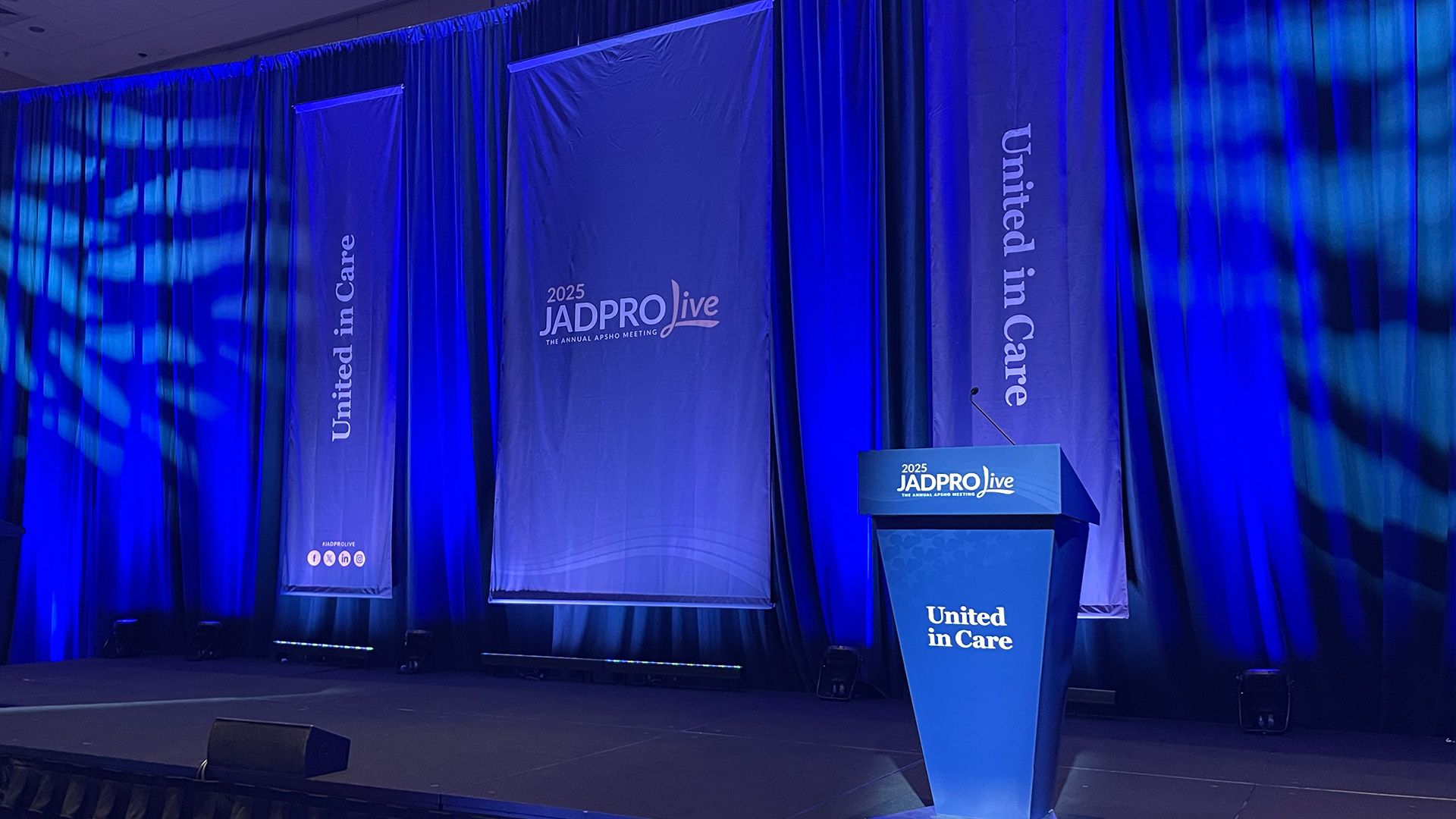
APP-Led Quality Assurance Group Is Feasible, Identifies Safety Events

An oncology APP-led quality assurance committee identified key safety events across disciplines and specialties.
An advanced practice provider (APP)-led peer review quality assurance (QA) committee was found to be feasible and identified common patient safety event (PSE) types while representing an APP perspective, according to pilot data shared in a poster presentation at JADPRO Live 2025 in National Harbor, Maryland.
The APP-led QA committee included 33 members across 8 disciplines and 19 specialties, reviewing 1216 PSEs in total from its formation in June 2023 to June 2025. Care coordination (49%) was the most common type of PSE, and most occurred in either the hospital (34%) or ambulatory clinic (33%).
Following care coordination, the next most common PSE types were medication/fluid (18%) and lab specimen (10%). Care coordination issues included delays (14%), miscoordination (8%), policy violations (5%), and handoff issues (2%).
In 2023, 2024, and 2025, a leadership subcommittee reviewed 295, 586, and 335 PSEs by year, respectively. The numbers of cases presented formally to the APP QA committee in those years were 5, 24, and 10, respectively.
What Responsibilities Did the APP Quality Assurance Committee Have?
Since its formation, the committee reviews adverse PSEs, near-misses, and grievances related to APP care, following the establishment of an APP QA huddle in 2022.
The leadership subcommittee convenes weekly to investigate and triage PSEs and track action items leading up to monthly meetings of the entire multidisciplinary APP QA committee. At the committee’s monthly meetings, select cases are formally presented to the group for review.
Pandey explained that the subcommittee triages the events, drawing on feedback from managing staff to prioritize cases. After the cases are selected and presented to the greater committee, the cases may be brought to other organizational committees at higher levels, sometimes reaching the board.
From June through end of 2023, 5 cases were presented to the committee; this number jumped to 24 in 2024, and as of June 2025 had reached 10 for the year so far. In an interview with Oncology Nursing News at the conference, presenter Shila Pandey, DNP, AGPCNP-BC, ACHPN, shared that this volume of events was expected.
“We are seeing in 2025 that the number [of PSEs] is increasing much more,” said Pandey. “Within 6 months, we are already almost reaching the full year of what we had last year.”
Pandey, a palliative care nurse practitioner at Memorial Sloan Kettering Cancer Center in New York, New York where the committee operates, explained that a climbing number of PSEs is an indicator of thorough QA.
“That is part of our organization’s goal to be highly reliable organization, which means you want staff to engage,” said Pandey. “When they are engaging in quality and safety, that means you’re going to get more event reporting.”
APP Leadership in Quality Assurance
In February 2025, an APP QA lead role was added to the program to allow for more time dedicated to supporting quality and safety initiatives as well as organizational duties of the committee, which Pandey occupies.
According to Pandey, part of the goal of the intervention was to better involve multidisciplinary staff to report PSEs.
“We are an APP-led QA committee. …We can speak on the role of the APP, our scope of practice, our limitations, if applicable, but we needed other clinicians to comment on their expertise,” said Pandey. “We needed nurses to talk about what nurses do and how that worked together. Sometimes we need a physician content expert, like a lymphoma oncologist, to [answer], how did harm reach the patient?”
As outlined in the poster presentation, peer review committees are in place for physicians and nurses but not APPs. The QA program was developed to account for a lack of a dedicated QA peer review structure.
Pandey emphasized that an engaged APP and multidisciplinary are key to the success of a program like this.
“What we really want to land home is it’s feasible. It’s doable. What you need is just some energy from APPs,” said Pandey. “You need leadership support, and you need to keep track of data, because that really helps to guide what other support you’re going to get, what resources you’ll get to keep doing this work.”
Reference
Pandey S, Linington A, Liu D, et al. Safeguarding excellence: insights from a novel advanced practice provider-led quality assurance committee. Presented at: JAPDRO Live 2025; October 23-26, 2025; National Harbor, Maryland. Abstract JL1340C.
Newsletter
Knowledge is power. Don’t miss the most recent breakthroughs in cancer care.


































